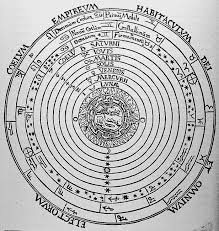Ancient Astronomy: The Celestial Wisdom of the Past
From before the first day on the earth, humanity looked up as well as gazed at the sky above with wonder. Long before telescopes existed and modern scientific theories embraced the skies; ancient cultures-the very first and finest of all-witnessed in celestial movements, observing them and developing highly refined and sophisticated astronomical knowledge for calendars, religions, and altogether daily life. This post discusses the gloriously astronomical advances of some of the most eminent ancient civilizations.
1. Mesopotamian Astronomy: The First Stargazers
They are often acknowledged as the very first people to develop astronomy. They were very careful in recording the movements of the Sun, Moon, and planets through time, during which movement they created one of the earliest known star catalogs. They recorded most observed events, such as lunar eclipse and planetary motions, by mathematical models developed from the deduced observations. Their numeral system base-60 still becomes the influence of our modern timekeeping.
The ancient Egyptians engaged astronomy in their architecture and religion. They made their pyramids and temples orient to the heavenly bodies, for they kept up with the immediate periods of the seasons. The rising of the star Sirius (or Sopdet) marked the annual inundation of the Nile river, which was very useful for cultivation. Egyptian astronomers also divided the night sky into decans-groups of stars for time measurement.
In ancient China, astronomy and imperial sovereignty were closely aligned. Chinese astronomers accounted for lavish celestial happenings, for example, supernova, comets, and eclipses. The first recorded star maps originated from the Han Dynasty, while their lunisolar calendar system was already advanced. The Chinese, too, invented an early seismograph by sensing slight celestial influences.
4. Greek Astronomy: The Birth of Scientific Thought Contains This Transformation
The Greeks initiated rational and mathematical explanations for celestial phenomena entirely new to astronomy. Greek mathematicians such as Ptolemy and Hipparchus elaborated theories on planetary motions. Thus, the geocentric model of Ptolemy held Western thought totally by the throat for more than a thousand years. Aristarchus of Samos proposed a heliocentric system even before Copernicus.
5. Mayan Astronomy: Masters of Time
The Maya society of Mesoamerica developed one of the most advanced astronomical systems of antiquity. They designed observatories and built calendars with planetary and solar cycles used for highly accurate measurement. Such calendars further provide proof that their famous Long Count Calendar is testimony to the precise knowledge that the Maya had in celestial mechanics, thereby enabling them to forecast the timing of solar and lunar eclipses.
6. Indian Astronomy: The Mathematical School
Early Indian contributions in the form of observational and mathematical astronomy are remarkably significant. Some of the earliest astronomical calculations are found within texts pertaining to the Vedanga Jyotisha. Aryabhata, the mathematician-astronomer, stated that the Earth rotates and precisely measured the period of a solar year. For example, much improvement over models of planetary motion and refinement in trigonometric functions are presented in the Surya Siddhanta, one of their greatest astronomical texts.
Conclusion: The Legacy from Ancient Astronomy
The first touch of ancient astronomy was what laid the foundations for modern astrophysics and space exploration. All these civilizations tried to achieve much over so very little, which little they were equipped thereof. Their very legacies are the knowledge bases for all of us today to strive on that everlasting quest of trying to understand the universe-not so much as illuminating, reminding us all the same that the attraction of stars has been as old as civilization itself.



Comments
Post a Comment